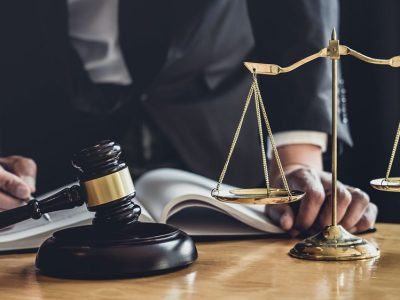Navigating the complex world of civil rights law can be daunting. Understanding when to call a civil rights attorney is crucial to protecting your rights and ensuring justice. This comprehensive guide provides detailed insights into recognizing civil rights violations and taking appropriate legal action.
Recognizing Civil Rights Violations
Civil rights violations occur when an individual’s freedoms or liberties are infringed upon by another party. These violations can happen in various settings, including workplaces, schools, and public spaces. Common civil rights violations include:
- Discrimination: Based on race, gender, age, religion, or disability.
- Police Misconduct: Excessive force, wrongful arrest, or racial profiling.
- Freedom of Speech: Being punished for expressing an opinion.
- Unlawful Searches and Seizures: Violations of privacy by law enforcement without proper warrants.
Understanding these violations is the first step toward seeking justice. If you experience any of these issues, consulting a Civil Rights Attorney can help you determine the best course of action.
When to Contact a Civil Rights Attorney
Discrimination in the Workplace
Workplace discrimination can manifest in various forms, including unequal pay, harassment, or wrongful termination based on race, gender, or other protected characteristics. It’s essential to contact a civil rights attorney if:
- You are denied a promotion due to your race or gender.
- You face harassment that creates a hostile work environment.
- You are wrongfully terminated for discriminatory reasons.
A civil rights attorney can help you file a claim with the Equal Employment Opportunity Commission (EEOC) and pursue legal action against your employer.
Police Misconduct
Instances of police misconduct, such as excessive force or wrongful arrests, are severe violations of civil rights. If you or a loved one has been a victim of police misconduct, it is crucial to seek legal assistance immediately. A civil rights attorney will:
- Investigate the incident thoroughly.
- Gather evidence and witness statements.
- File a lawsuit against the offending officers or department.
Having an experienced attorney on your side can significantly improve your chances of receiving justice and compensation.
Violations of Free Speech
Freedom of speech is a fundamental right protected by the First Amendment. If you are punished for expressing your opinion, whether in a public forum or online, you may have grounds for a civil rights claim. Contact a civil rights attorney if:
- You are disciplined or fired for expressing your views.
- Your speech is censored by a government entity.
- You face legal repercussions for peaceful protest.
An attorney can help defend your rights and ensure your freedom of expression is protected.
How a Civil Rights Attorney Can Help
A civil rights attorney plays a pivotal role in protecting your liberties and ensuring justice. They can:
- Evaluate Your Case: An attorney will assess the details of your situation and determine if you have a viable claim.
- Gather Evidence: Collecting evidence is critical in building a strong case. Your attorney will obtain necessary documents, witness statements, and expert testimony.
- File Legal Claims: If your rights have been violated, your attorney will file the appropriate legal claims and represent you in court.
- Negotiate Settlements: In many cases, disputes can be settled out of court. An experienced attorney will negotiate on your behalf to achieve a fair settlement.
- Provide Legal Advice: Throughout the process, your attorney will offer guidance and support, ensuring you understand your rights and options.
Importance of Timely Action
Taking swift action is crucial in civil rights cases. Many claims are subject to strict filing deadlines, known as statutes of limitations. Missing these deadlines can result in the dismissal of your case. Therefore, it is essential to contact a civil rights attorney as soon as you suspect your rights have been violated.
Steps to Take When Contacting a Civil Rights Attorney
Document the Violation
Before contacting a civil rights attorney, it is essential to gather as much evidence as possible. This includes:
- Detailed Records: Write down everything you remember about the incident, including dates, times, locations, and the names of any witnesses.
- Physical Evidence: Collect any physical evidence that supports your claim, such as photographs, videos, emails, or other documents.
- Medical Records: If you suffered physical or emotional harm, obtain copies of your medical records and any related bills or documentation.
Having a well-documented case can significantly strengthen your position when you meet with your attorney.
Consultation Process
During your initial consultation with a civil rights attorney, you can expect the following:
- Case Evaluation: The attorney will listen to your account of the events and review any evidence you have gathered. They will provide an initial assessment of the strength of your case.
- Legal Advice: Based on their evaluation, the attorney will advise you on the best course of action. This may include filing a complaint with a government agency, pursuing a lawsuit, or seeking a settlement.
- Fee Structure: The attorney will explain their fee structure, which may include hourly rates, flat fees, or contingency fees (where the attorney only gets paid if you win your case).
Filing a Complaint
In many civil rights cases, it is necessary to file a formal complaint with a relevant government agency before pursuing legal action. Common agencies include:
- Equal Employment Opportunity Commission (EEOC): Handles workplace discrimination complaints.
- Department of Justice (DOJ): Deals with a wide range of civil rights violations.
- State and Local Agencies: Many states and municipalities have their own agencies that handle civil rights complaints.
Your attorney will help you navigate this process, ensuring that your complaint is filed correctly and within the required time frame.
Litigation and Settlement
If your case proceeds to litigation, your civil rights attorney will represent you throughout the legal process. This includes:
- Pre-Trial Motions: Filing necessary motions to support your case and counter any attempts by the defense to dismiss it.
- Discovery Process: Gathering additional evidence through depositions, interrogatories, and document requests.
- Trial Representation: Presenting your case in court, including making opening and closing statements, examining witnesses, and submitting evidence.
- Settlement Negotiations: Throughout the litigation process, your attorney will negotiate with the opposing party to reach a fair settlement. Many civil rights cases are resolved through settlements, which can provide quicker and less stressful resolutions than a full trial.
Real-Life Examples
To illustrate the importance of contacting a civil rights attorney, consider these real-life examples:
Case Study 1: Workplace Discrimination
Jane Doe, a highly qualified employee, was repeatedly passed over for promotion in favor of less qualified male colleagues. She also faced sexual harassment from her supervisor. Feeling powerless, Jane contacted a Car Accident Attorney. The attorney helped her file a complaint with the EEOC, and after an investigation, Jane received a substantial settlement that compensated her for lost wages and emotional distress.
Case Study 2: Police Misconduct
John Smith was wrongfully arrested and subjected to excessive force by police officers during a peaceful protest. He sustained injuries that required medical treatment. John’s civil rights attorney filed a lawsuit against the police department. The case garnered media attention, leading to a public apology from the police chief and a significant monetary award for John.
Case Study 3: Free Speech Violation
A university professor, Dr. Lee, was disciplined for expressing controversial political views during a lecture. Believing his First Amendment rights were violated, Dr. Lee contacted a civil rights attorney. The attorney successfully argued that the university’s actions were unconstitutional, resulting in Dr. Lee’s reinstatement and a policy change to protect academic freedom.
Final Thoughts
Knowing your rights and understanding when to call a Personal Injury Attorney is essential steps in protecting your freedoms and seeking justice. Whether you are facing discrimination, police misconduct, or other civil rights violations, having a knowledgeable attorney on your side can make a significant difference in the outcome of your case.
If you or someone you know has been a victim of civil rights violations, do not hesitate to reach out to a qualified civil rights attorney. Their expertise can guide you through the legal process, ensuring your rights are protected and justice is served.














Comments